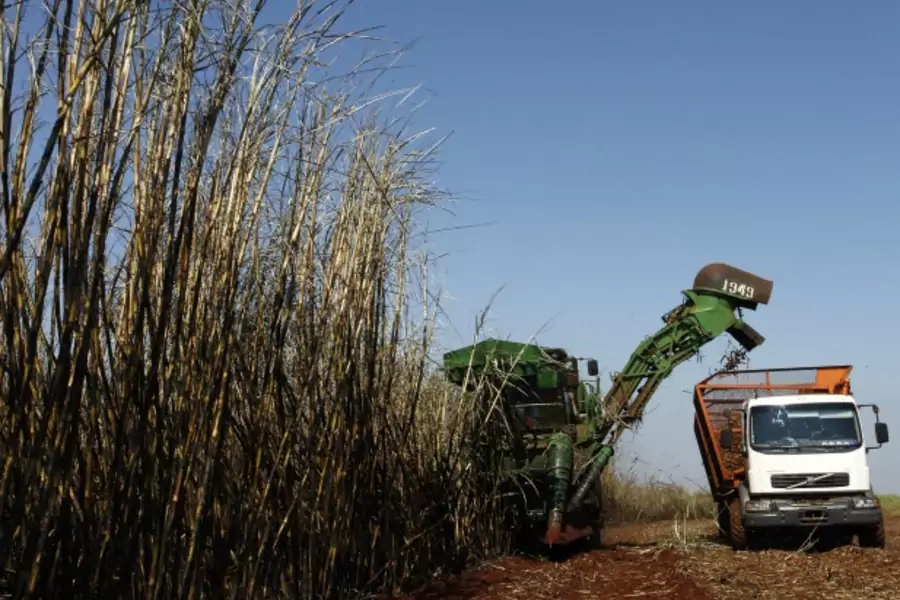More on:
I am in Brazil this week, and met today with people from the Brazilian Sugarcane Industry Association (UNICA). In Brazil this means they are active energy players, as over half of the crop in Brazil is used for ethanol. In recent years they have become an effective lobbying force not just in Brazil, but also in Washington (and in Brussels).
They presented an ambitious future, with production and productivity increasing to meet both rising internal demand for biofuels and big jumps in projected exports. Brazil’s sugar-based ethanol is far more energy efficient than U.S. corn-based ethanol, and getting more so through biological innovations. Today Brazil is the world’s second largest supplier and consumer of ethanol (bested only by the United States). Now the majority of its cars run on ethanol, consuming almost a third of the world supply. Brazil also has huge tracts of agricultural land that could support the projected growth in biofuels demand.
But a couple of challenges remain. One is transportation. Getting ethanol from the interior to the main industrial and urban markets (or to ports for export) remains a major issue. For the moment most is transported by truck (some also by train), but the state of roads makes this increasingly expensive as producers move away from Sao Paulo state. A group of sugarcane growers and mill owners are planning to build an ethanol pipeline, which would provide an innovative solution in the medium term (if they can come up with the financing).
A second is cheap gas. Where Brazilian biofuels were once competitive or nearly competitive with conventional fuels, the discovery of huge amounts of shale gas around the world is beginning to question the role of biofuels in filling global energy gaps. From the United States to Argentina to Europe, energy calculations and expectations are shifting, shaking up renewable enery markets in the process. Some 35 countries have mandates to increase the percentage of renewable energy in fuel, which will provide some support for biofuels markets. But companies and countries are less likely to make the infrastructure and distribution investments needed for broader usage in a cheap gas world.
Brazil is a world leader today in biofuels through its dominance in sugar-based ethanol. It is working to expand that role internally and abroad. But it remains to be seen what role biofuels will play in the global energy matrix, and whether they will be surpassed by second generation cellulosic biofuels, or by other types of fuel more generally.
More on:
 Online Store
Online Store
